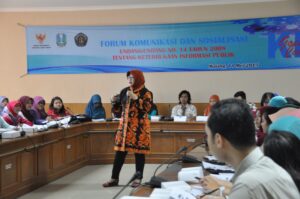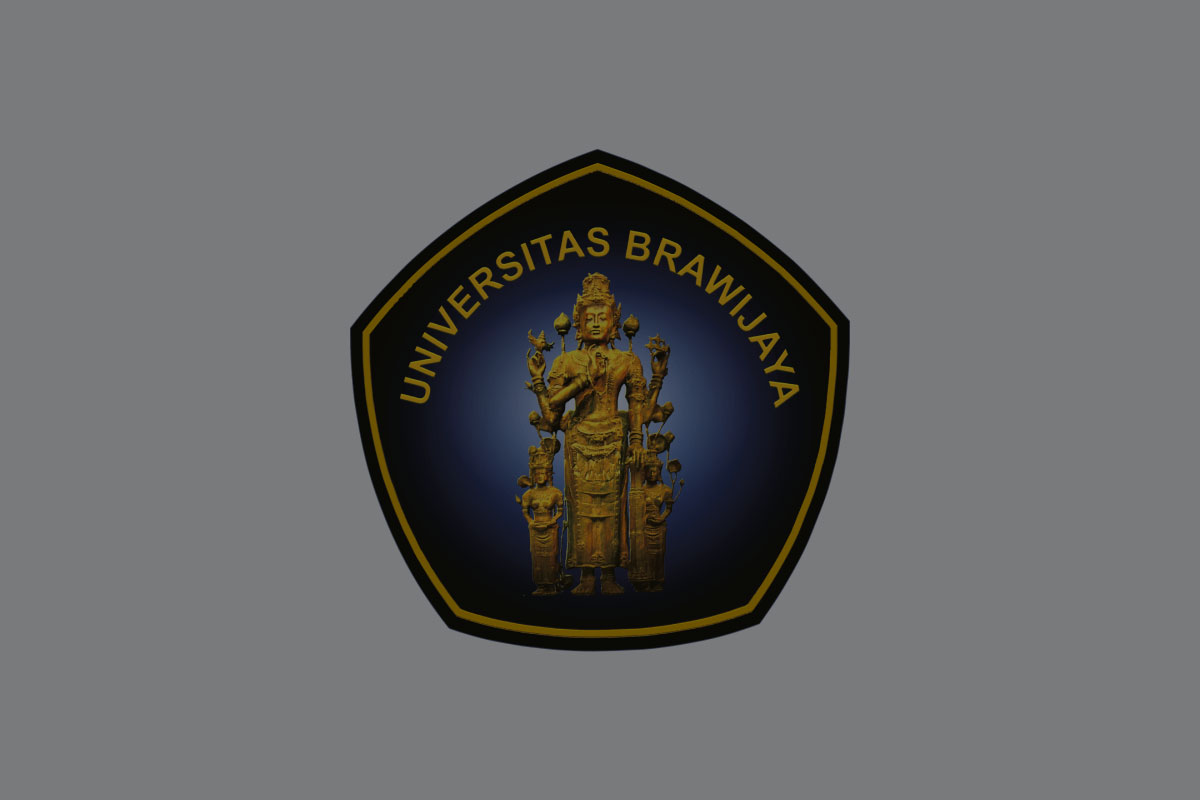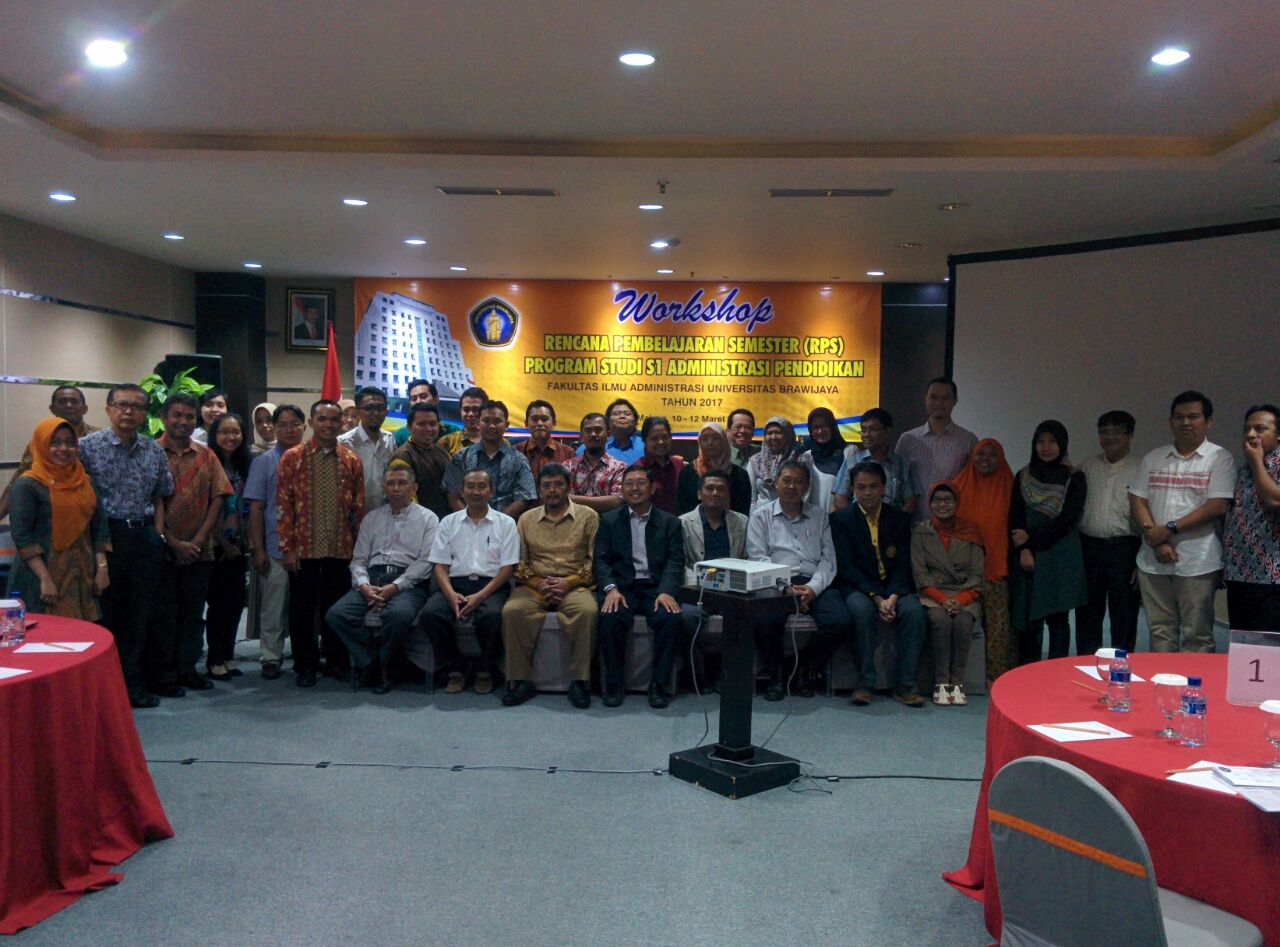In the era of technology and information like today, information disclosure is something that cannot be negotiated anymore. All organizations with the status of a public agency, meaning that the organization is funded by the state budget, are required to implement information disclosure to the public. Thus, the level of public participation in the running of public services becomes greater, especially in terms of monitoring the performance of public bodies. That is the essence of Law number 14 of 2008 concerning Public Information Disclosure which was conveyed in the event "KI Goes to Campus: Socialization and Communication Forum of Law no. 14 of 2008 concerning Public Information Disclosure”. The event was organized by the Information Commission (KI) of East Java Province in collaboration with the Public Administration Department of FIA UB, Monday (11/5).
Dean of FIA UB Prof. Dr. Bambang Supriyono, MS expressed the importance of this socialization being carried out to the academic community of FIA UB, especially the students who seemed to fill the room for this event. The Dean agreed that information disclosure in the current era is a necessity. However, in its implementation, it is certainly not permissible to violate the ethics and norms that exist in society. "For example, don't let a child report their own parents to the police because of the disclosure of information," added the Dean.
In an event that is more formatted as a scientific discussion, there are two speakers who take turns conveying their thoughts on this topic. The first is Dr. Mohammad Nuh, M.Sc, Chair of the Center for Information Systems, IT Infrastructure, and Public Relations (PSIK) FIA UB with the theme "Information Openness and Public Sector Accountability". Meanwhile Ketty Tri Setyorini, Chair of the East Java Information Commission, conveyed more about the essence and guidelines for using this law to providers and applicants of public information.

In his presentation, Nuh revealed that with the development of information and technology as it is today, the world has become a kind of 'global village'. Thus, what is happening in one region can be easily known by people in other areas. Therefore, the Indonesian government during the era of President Susilo Bambang Yudhoyono had initiated this information disclosure through a special institution called Indonesian Open Government or OGI domiciled at the State Secretariat. It was thanks to President SBY's initiative that Indonesia's budget openness rating could experience a rapid increase. "According to the 2013 Open Budget Index, Indonesia's ranking has risen from 51st in 2010 to 62nd in 2012 in terms of budget transparency," said Nuh.
Furthermore, the man who had just returned from his doctoral study assignment in Thailand also mentioned a little about the achievements of Universitas Brawijaya (UB) in assessing public transparency in the Higher Education category. Even though UB is ranked 2nd, only losing to the University of Indonesia, the ranking carried out by the central Information Commission only involves 16 campuses, so it cannot be an illustration of the actual level of transparency of UB. However, he understands this result because this ranking is still in the introduction stage. "UB, especially FIA UB, has taken the right step in terms of information disclosure, one of which is that we provide communication facilities with the academic community via Facebook and Twitter while continuing to improve the display quality of our faculty website," said Nuh.
Meanwhile, Ketty Tri Setyorini as Chair of the East Java KI said that with this law, students on campus actually no longer need to demonstrate to ask for public information. This is because basically all public bodies, including universities, have an obligation to open public access to information owned by universities, even if they are not asked for it. However, not all information can be provided by a public body. "Matters that are state secrets, personal secrets, or business secrets are included in the type of information that may not be consumed by the public," he said.
Then, Ketty also explained that IC has functions and authorities similar to a judicial institution, namely when there is a submission of information that a public agency is unable to fulfill within a predetermined time limit. Thus, IC guarantees open access to information by the public as long as the information requested is information that is intended for public consumption. However, an information requester may not be arbitrary in utilizing the information he gets. "Both parties, whether providing or requesting information, can be subject to punishment if they abuse their respective rights in terms of information disclosure," said the woman who once served as Chair of the Jember General Election Commission (KPU). (ALA/FIA)








